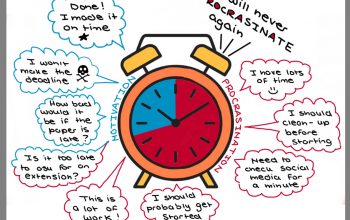A problem that should be eating away at all Canadians
Garnet Ryu – OPINIONS EDITOR
We’ve all been there. In the grocery-store, picking out only the best apples you can find, or at home, picking off the leftovers on your plate. I mean, of course you want the best foods for yourself and your family. And what’s the point of saving that one slab of meat if you can just go buy some more later?
This is the way in which Canada wastes its food each year. Thirty-one billion dollars worth of food, according to the Value Chain Management International (VCMI), and that’s excluding certain sources of waste that they are unable to measure accurately.
Food wastage isn’t referring to rotten food that’s been thrown out, but, rather, perfectly edible food that was discarded for whatever reason, during every step of the process it takes to get the food from the ground to your mouth.
Globally, a third of food wastes occurs before even reaching consumers, amounting up to around 1.3 billion tons of food a year. 30% of plant produce isn’t “attractive enough” for supermarket shelves. Although much of the wastage in Canada is attributed to packaging and processing, retail, farming, and transport and distribution, the consumer is known to be the biggest source of wasted food, 47% (around 275 kg) of food wastes coming from each household annually. Much of this has to do with our need to have only the best of foods from the supermarkets, where we scrutinize every blemish on every fruit and root and leaf, and in our homes, where anything past the “best before” date is considered untouchable.
The problem with this mentality is that it’s damaging to all levels of food-handling. For example, farmers, whose paychecks depend on the amount of their food consumers purchase, lose much revenue through the large volumes of food lost or discarded. The disposal of the waste is expensive too, costing Torontonians around ten-million dollars annually, and the cost of food in general rises because of the large amount of energy (from labour, water, machinery, transportation, etc) required to produce a larger amount of food caused by the large amounts of wasted food. Evidence of this is immediately seen if you were to observe the garbage bins behind store like Walmart—much of the food discarded there has been observed as unblemished.
Environmental issues surrounding food wastage becomes increasingly apparent, food waste accounting for around 70% or landfills and 30% of greenhouse emissions. In fact, intensive farming gives rise to worse farming conditions, raising the amount of work needed to produce the same amount of produce each year, which would not allow farmers to undertake proper, more expensive forms of land management. Thus, we enter a sort of cycle between environment and costs, the numbers regarding both taking on a steady escalation.
Although I’m just as guilty as everyone else for contributing to this system, I find it ridiculous that we live in a country, or even a world, in which some people struggle to feed themselves while others waste nearly half of the food they consume. In fact, while developed countries like Canada waste enough food to feed all of the people lacking food today, one in eight Canadians have difficulty earning enough money to buy increasingly more expensive food, and around 860 million people worldwide are malnourished.
All this can seem way above our heads. If 57% of food produce is wasted before it even reaches our eyes, how on earth are we supposed to combat it? I would say the first step to change here would be awareness. Developed nations need a mentality shift towards food, whether that is through the media, through the education system, through the government. A greater effort from the government, through better maintenance systems and employee training, and a greater effort from the general public is called for.
Some individuals are already making a difference in the way we handle food, volunteer programs like “Second Harvest” collecting surplus food to redistribute. In a similar way, I believe greater awareness and effort towards this cause will reveal more opportunities to correct it on both a national and global level.




